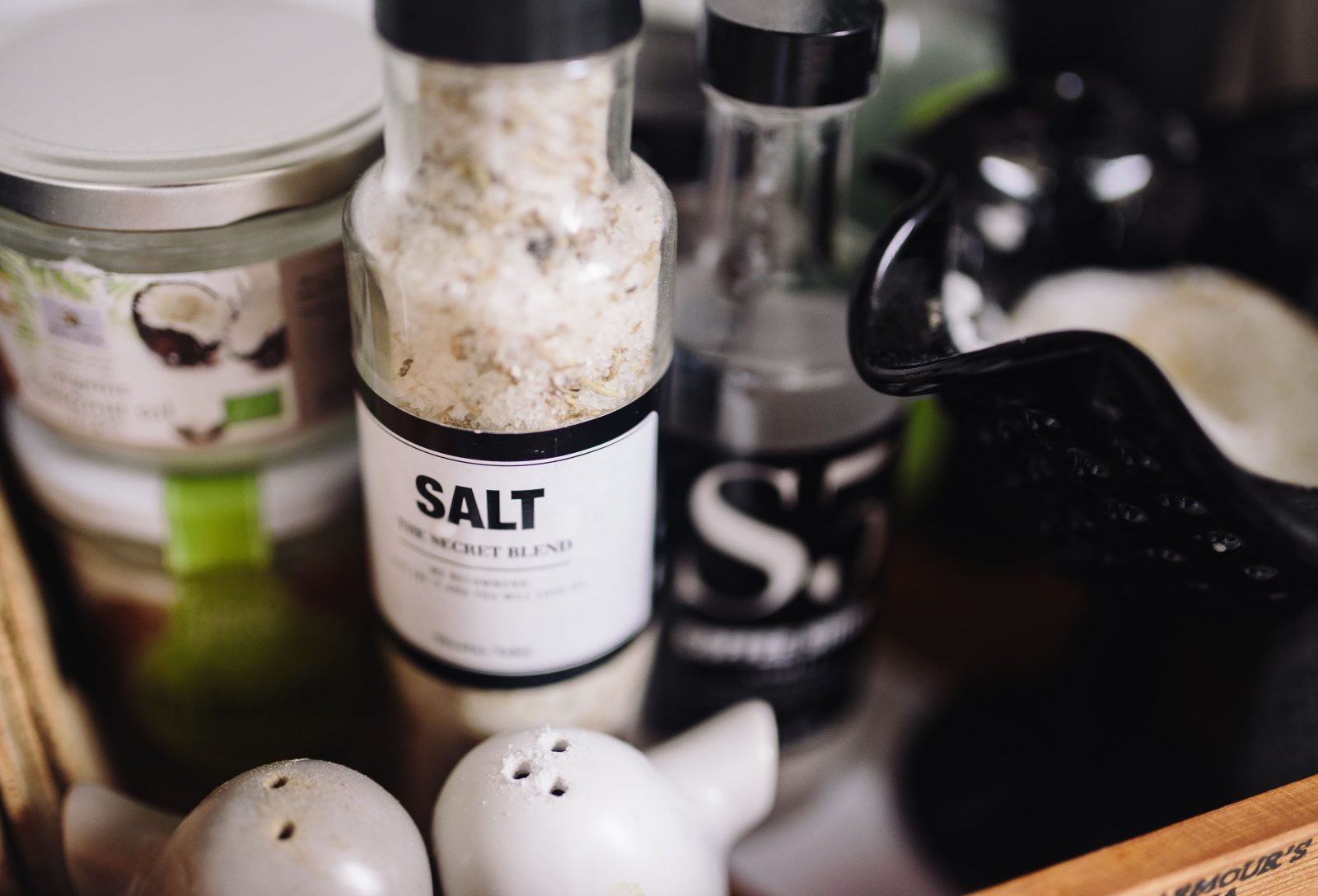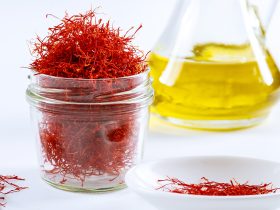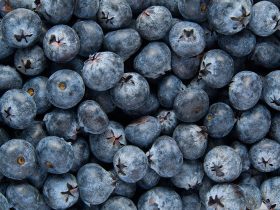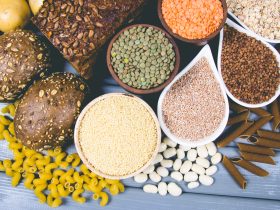Salty foods often become a common craving due to the body’s essential need for salt, primarily in the form of sodium, to maintain vital functions.1
However, excessive salt intake is prevalent in the United States, largely sourced from processed and restaurant foods. Despite this, persistent cravings for salt may signal an underlying health issue.23
Let’s talk about the reasons behind salt cravings, potential implications for health, and actionable steps to address them!
Why am I craving salty foods?
There could be several reasons behind your cravings for salt, whether they occur occasionally or more frequently.
- Chronic stress
The experience of chronic stress triggers the release of cortisol and other hormones linked to appetite, potentially leading to cravings for salty, fatty, or sugary foods.
During stressful situations, emotional eating might be employed as a means of self-soothing, and your favorite salty snacks could become a go-to pattern under prolonged stress.
- Dehydration
Sodium, an essential electrolyte, is necessary for the body to function effectively. Dehydration can occur when there’s an imbalance in electrolyte levels. Craving salt might be your body’s way of trying to restore this equilibrium.
Interestingly, the part of the brain responsible for regulating hunger is closely linked to thirst. Some studies suggest that your body could interpret the need for water as a craving for salty snacks.
- Boredom
Feeling a strong urge for salty comfort food during moments of boredom is quite common. Research indicates that reaching for specific foods when bored can activate the brain’s reward center, leading to an increase in dopamine levels.
Eating out of boredom might be associated with emotional eating tendencies, and for many individuals, the preferred snacks during such times tend to be salty, sweet, or a even combination of both.
- Excessive sweating
Experiencing excessive sweating due to various activities like intense workouts, exposure to hot weather, or certain health conditions may trigger cravings for salty foods. When the body sweats excessively, it loses essential electrolytes, especially sodium, critical for maintaining proper bodily functions. The body naturally craves salty foods as a way to replenish sodium levels and restore electrolyte balance.
This craving for salt often accompanies other symptoms like thirst and fatigue, indicating a need for rehydration and electrolyte replenishment.
Consuming salty foods in response to excessive sweating can help the body recover lost sodium, aiding in restoring electrolyte balance and addressing the body’s physiological needs after sweating excessively.
- Lack of sleep
Sleep deprivation impacts dietary choices by influencing cravings, particularly for high-calorie foods. Studies reveal that inadequate sleep can trigger heightened desires for foods rich in calories, such as those high in salt, sugar, and fat.
This heightened craving for salty, sweet, or savory options is attributed to hormonal signals that stimulate the brain’s “reward” center, leading to an increased desire for salty snacks specifically.
Research suggests that when individuals don’t get enough sleep, the body’s hormonal balance is disrupted, causing an increase in ghrelin, a hormone that stimulates appetite, and a decrease in leptin, a hormone responsible for signaling fullness.
Consequently, this hormonal imbalance drives the craving for salty foods, often resulting in indulgence in high-calorie, salty snacks.
If you’re interested in exploring strategies for enhanced sleep quality and its positive effects on overall well-being, check out 17 proven methods to improve your sleep habits.
- Migraines
Migraine attacks are often preceded by a phase known as the prodrome, where specific symptoms occur before the actual onset of the headache.
For some migraine sufferers, a craving for salty foods is noted as one of the symptoms during this phase. Studies suggest that this craving might arise from the belief that consuming salty foods could help alleviate or manage withdrawal migraines.
Explore the potential connections between auditory stimuli and migraine relief and gain insights into a unique perspective on managing migraine symptoms.
However, the exact mechanism behind this craving and its relation to migraine attacks requires further research for a comprehensive understanding.
- PMS (Premenstrual Syndrome)
PMS encompasses a range of physical and emotional symptoms that many individuals experience in the lead-up to their menstrual period.
Among the various symptoms observed during this phase, changes in appetite and specific cravings, including a desire for salty foods, are commonly reported. Thirst and increased appetite for salty snacks may occur as part of PMS-related symptoms.
Mild dehydration during the premenstrual phase could potentially contribute to these cravings, as the body seeks to restore electrolyte balance and fulfill sodium needs.
- Medications
Certain medications that affect the adrenal glands (which produce hormones for various bodily functions) may lead to cravings for salty snacks. Some of these medications include:
- Glucocorticoids
- Protein kinase inhibitors
- Antifungal medications
- Tramadol
- Immunotherapy checkpoint inhibitors
Always consult a healthcare provider before discontinuing any medication suspected of contributing to salt cravings.
- Sodium deficiency (Hyponatremia)
Sodium is an essential electrolyte crucial for maintaining proper fluid balance and nerve function in the body. When sodium levels drop below normal levels, a condition known as hyponatremia occurs, signaling an imbalance of electrolytes.
When the body lacks sufficient sodium, it tries to regulate its levels by signaling salt cravings, which may lead individuals to seek out salty foods or increase their salt intake.
Treating sodium deficiency involves addressing the underlying cause and, in some cases, carefully adjusting salt intake under medical supervision to restore proper electrolyte balance.
Conditions that can cause salt cravings
Anemia
Iron deficiency anemia occurs when the body lacks sufficient iron to produce healthy red blood cells. Some studies suggest that individuals with iron deficiency anemia might experience cravings for salty foods.
Iron deficiency can be caused by various factors, including inadequate dietary intake of iron, chronic blood loss, pregnancy, or certain medical conditions that impair iron absorption. If salt cravings are associated with iron deficiency anemia, other symptoms such as fatigue, weakness, pale skin, and cold extremities might also be present.
Treatment for iron deficiency anemia typically involves iron supplementation and dietary changes to increase iron intake to alleviate symptoms and correct the underlying deficiency.
Addison’s disease
Addison’s disease is a rare and chronic disorder where the adrenal glands fail to produce enough cortisol, a hormone vital for various bodily functions. This hormonal insufficiency can result in imbalances in sodium and potassium levels.
In Addison’s disease, the body might lose sodium more rapidly than usual, leading to a condition called salt wasting. As a consequence, individuals with Addison’s disease might experience pronounced salt cravings due to their body’s heightened need to replace lost sodium.
Common symptoms of Addison’s disease include fatigue, muscle weakness, hyperpigmentation, weight loss, and low blood pressure.
Cystic Fibrosis (CF)
Cystic fibrosis is an inherited genetic disorder that primarily affects the lungs and digestive system. It leads to the production of thick and sticky mucus, which can block airways and obstruct the ducts in the pancreas.
This thick mucus also affects the body’s ability to transport chloride, an element of salt, leading to an imbalance of sodium and chloride in the body. As a result, individuals with CF might experience increased salt loss in their sweat and other bodily fluids, leading to salt cravings.
This increased loss of salt can be significant, particularly during activities that cause sweating, which may prompt a strong desire for salty foods.
CF is usually diagnosed in early childhood, and while treatments have improved life expectancy, individuals with CF often require lifelong management to maintain health and manage symptoms.
Bartter syndrome
Bartter syndrome is a group of rare genetic disorders affecting the kidneys’ ability to reabsorb certain electrolytes, including sodium, leading to their excessive loss through urine.
This electrolyte imbalance, particularly the loss of sodium, triggers an intense craving for salty foods. Individuals with Bartter syndrome may experience symptoms such as dehydration, weakness, muscle cramps, and bone problems due to the excessive loss of salt and other electrolytes in the urine.
When it’s time to see a doctor
It’s normal to have occasional cravings for salty foods as salt, in the form of sodium, is essential for the body’s functioning. This isn’t concerning unless you consistently consume excessive amounts of sodium from processed or unhealthy foods.
However, if you find yourself regularly battling cravings for salty snacks over an extended period, it’s advisable to consult a healthcare provider.
Pay attention to any other unusual symptoms you may be experiencing, as they could be indicative of an underlying health condition or an eating disorder.
How to satisfy your cravings without salt
Numerous alternative flavors can help satisfy your craving for salt without significantly increasing your sodium intake. When preparing meals, consider substituting salt with other seasonings such as garlic, herbs, black pepper, vinegar, or lemon to enhance taste.
A healthy homemade snack option that provides a salty taste is roasting chickpeas in olive oil and lightly seasoning them with salt. Canned foods like tuna can be rinsed to reduce some of the added sodium.
When selecting ready-made or packaged snacks, it’s advisable to review the nutritional labels to assess the salt content. Health experts suggest opting for products containing less than 140 milligrams (mg) of sodium per serving.
Additionally, examining the ingredients list can be helpful. Consider avoiding foods where salt appears at the top of the label.
















Find Us on Socials